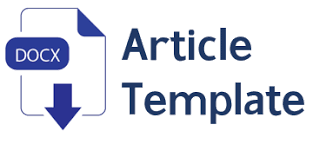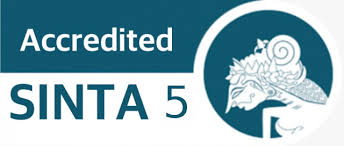Publication Ethics
Seulanga : Journal of Child Education is a journal that aims to be a leading peer-reviewed platform and authoritative source of information. We publish original research papers, review articles, and case studies focused on Child Education and related topics that have not been published elsewhere in any language nor are they currently being reviewed for publication elsewhere. The following statement clarifies the ethical behavior of all parties involved in the act of publishing articles in this journal, including authors, editors, reviewers and publishers.
Duties of Author
- Originality and Plagiarism: Authors must ensure that they have written completely original work. Manuscripts may not be submitted simultaneously to more than one publication unless the editor has agreed to joint publication. Relevant previous work and publications, both by other researchers and the authors themselves, must be properly acknowledged and referenced. Primary literature should be cited whenever possible. Original words taken directly from publications by other researchers must appear in quotation marks with appropriate citations
- Multiple, Redundant, or Concurrent Publication: Authors generally should not submit the same manuscript to more than one journal concurrently. Authors are also expected not to publish redundant manuscripts or manuscripts that describe the same research in more than one journal. Submitting the same manuscript to more than one journal simultaneously is unethical and unacceptable publishing behavior. Several publications arising from a single research project should be clearly identified and the main publication should be referred to
- Acknowledgment of Sources: Authors must acknowledge all data sources used in the research and cite publications that were influential in determining the nature of the work reported. Proper acknowledgment of the work of others should always be given
- Paper Writing: The authorship of a research publication must accurately reflect an individual's contribution to the work and its reporting. Authorship should be limited to those who have made a significant contribution to the conception, design, conduct or interpretation of the study being reported. Others who have made significant contributions should be listed as co-authors. In cases where the main contributors are listed as authors while those who made less substantial, or purely technical, contributions to research or publication are listed in the acknowledgments section. The author also ensures that all authors have seen and approved the submitted version of the manuscript and the inclusion of their names as co-authors.
- Disclosure and Conflict of Interest: All authors must clearly disclose in their manuscript any financial or other substantive conflict of interest that might be construed to influence the outcome or interpretation of their manuscript. All sources of financial support for the project must be disclosed.
Duties of Editor
- Publishing Decision: Based on the editorial board's review report, the editor can accept, reject, or request modification of the manuscript. The validation of the work and its importance to researchers and readers should always drive those decisions. Editors may be guided by the policies of the journal's editorial board and limited by applicable legal requirements regarding defamation, copyright infringement, and plagiarism. The editor may confer with other editors or reviewers in making this decision. Editors must be responsible for everything they publish and must have procedures and policies in place to ensure the quality of the material they publish and maintain the integrity of published records.
- Manuscript Review: The editor must ensure that each manuscript is initially evaluated by the editor for authenticity. Editors must organize and use peer review fairly and wisely. Editors should describe their peer review process in the information for authors and also indicate which parts of the journal are peer reviewed. Editors should use appropriate peer reviewers for papers considered for publication by selecting people with sufficient expertise and avoiding conflicts of interest.
- Fair: Editors must ensure that every manuscript received by the journal is reviewed for intellectual content regardless of gender, gender, race, religion, nationality, etc. from the author. An important part of the responsibility to make fair and impartial decisions is to uphold the principles of editorial independence and integrity. Editors are in a powerful position to make decisions about publication, which makes it very important that this process is fair and impartial.
- Confidentiality: Editors must ensure that information regarding manuscripts submitted by authors is kept confidential. Editors must be critical
Duties of Reviewers
- Contribution to editorial decisions : Peer review assists editors in making editorial decisions and, through editorial communications with authors, may assist authors in improving their manuscripts. Peer review is an essential component of formal scholarly communication and lies at the heart of scientific endeavour.
- Promptness : Any invited referee who feels unqualified to review the research reported in a manuscript or knows that its prompt review will be impossible should immediately notify the editors and decline the invitation to review so that alternative reviewers can be contacted.
- Confidentiality : Any manuscripts received for review are confidential documents and must be treated as such; they must not be shown to or discussed with others except if authorized by the Editor-in-Chief (who would only do so under exceptional and specific circumstances). This applies also to invited reviewers who decline the review invitation.
- Standards of objectivity : Reviews should be conducted objectively and observations formulated clearly with supporting arguments so that authors can use them for improving the manuscript. Personal criticism of the authors is inappropriate.
- Acknowledgement of sources : Reviewers should identify relevant published work that has not been cited by the authors. Any statement that is an observation, derivation or argument that has been reported in previous publications should be accompanied by the relevant citation. A reviewer should also notify the editors of any substantial similarity or overlap between the manuscript under consideration and any other manuscript (published or unpublished) of which they have personal knowledge.
- Disclosure and conflicts of interest : Any invited referee who has conflicts of interest resulting from competitive, collaborative, or other relationships or connections with any of the authors, companies or institutions connected to the manuscript and the work described therein should immediately notify the editors to declare their conflicts of interest and decline the invitation to review so that alternative reviewers can be contacted.

